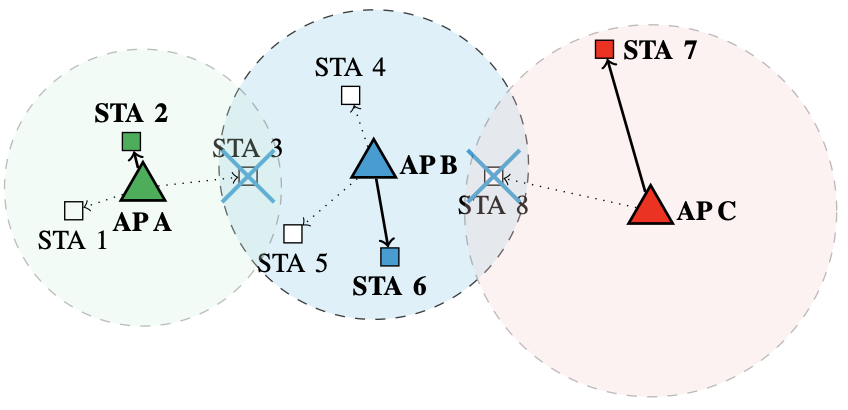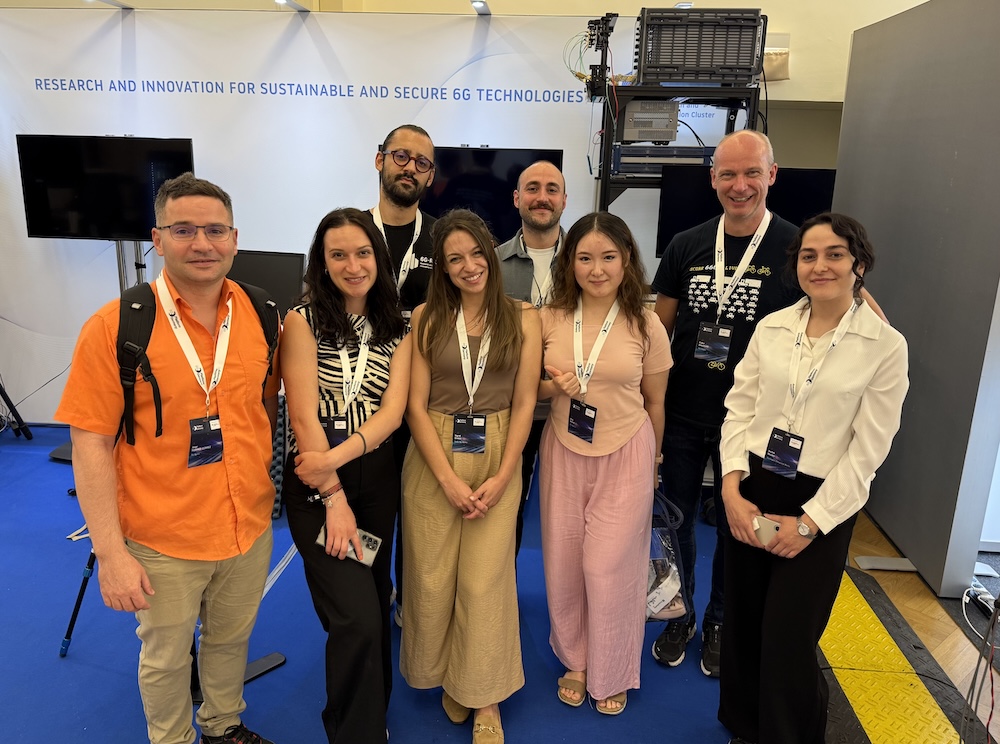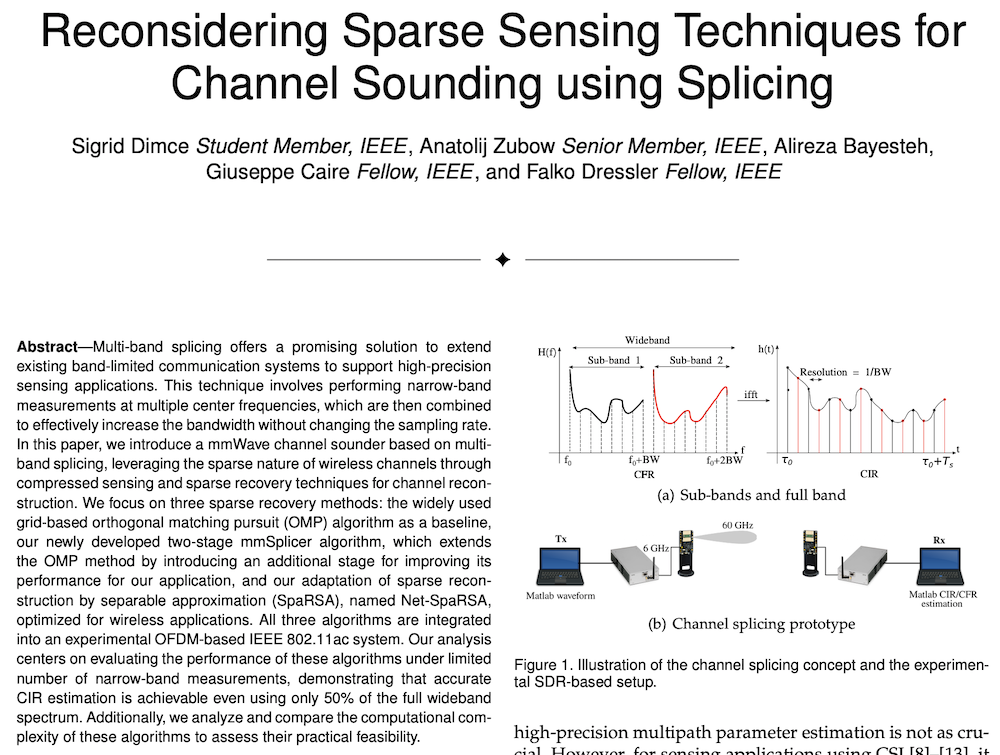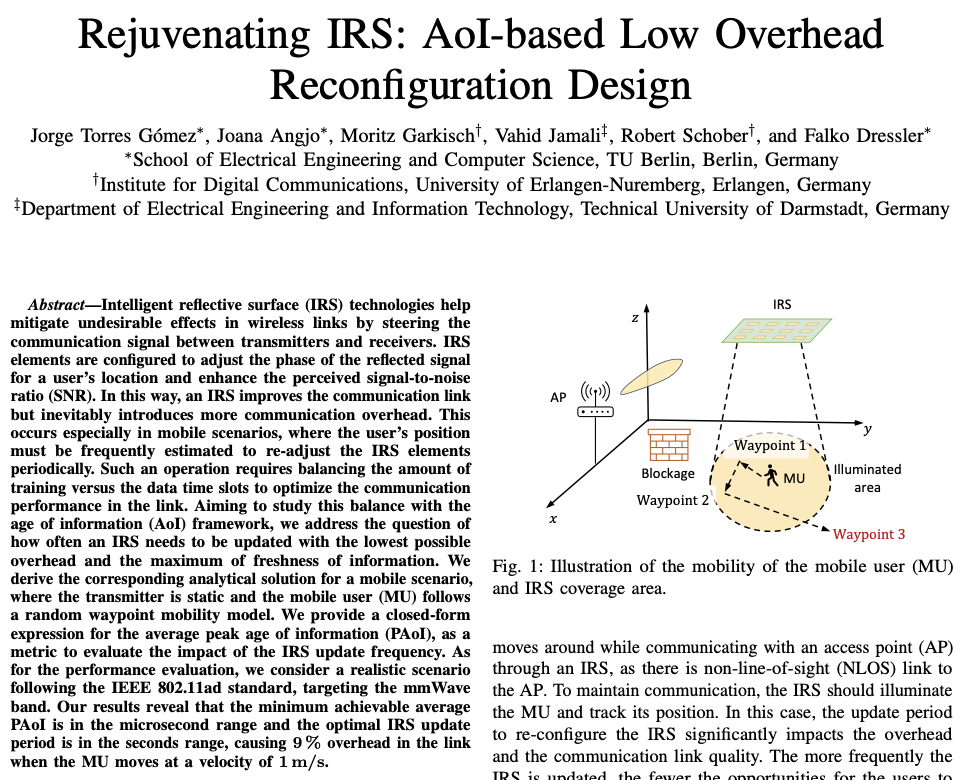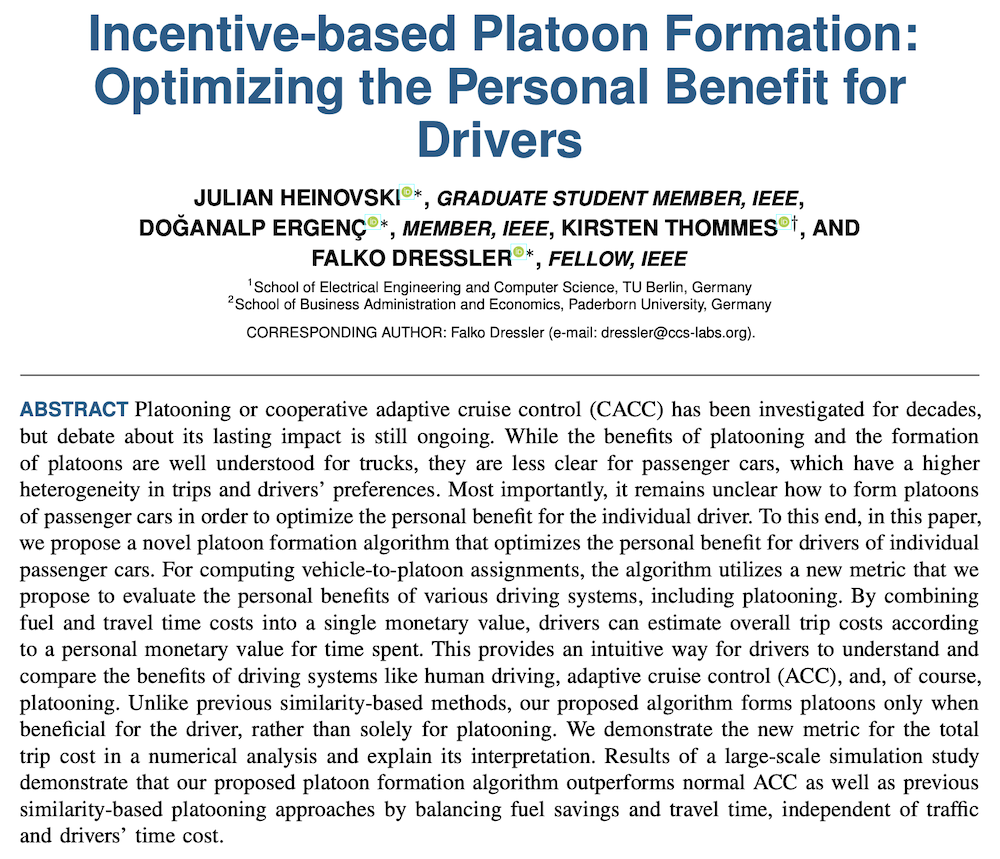Literature Database Entry
wang2024study
Naitian Wang, "Study of Frequency Reuse Strategies for Compensation of Base Station Outage," Master's Thesis, School of Electrical Engineering and Computer Science (EECS), TU Berlin (TUB), January 2024. (Advisor: Anatolij Zubow; Referees: Falko Dressler and Thomas Sikora)
Abstract
This thesis conducts a comprehensive study of different frequency reuse strategies, namely hard frequency reuse strategy, strict frequency reuse strategy, and soft frequency reuse strategy, focusing on their respective advantages and disadvantages. In addition, the study combines the MAC schedulers and interference management. Key performance indicators, such as cell user SINR, throughput, and overall communication quality recovery, are evaluated to determine the suitability of each strategy for our scenario. The study posits that the Strict Frequency Reuse strategy combined with the Proportional Fair MAC scheduler has superior operational performance before base station outage and offers effective compensation after base station outage. The results are shown through the simulations. In summary, this study enhances the understanding of the advantages and challenges associated with different frequency reuse strategies. The appropriate compensation strategy was selected for the proposed scenario.
Quick access
Contact
Naitian Wang
BibTeX reference
@phdthesis{wang2024study,
author = {Wang, Naitian},
title = {{Study of Frequency Reuse Strategies for Compensation of Base Station Outage}},
advisor = {Zubow, Anatolij},
institution = {School of Electrical Engineering and Computer Science (EECS)},
location = {Berlin, Germany},
month = {1},
referee = {Dressler, Falko and Sikora, Thomas},
school = {TU Berlin (TUB)},
type = {Master's Thesis},
year = {2024},
}
Copyright notice
Links to final or draft versions of papers are presented here to ensure timely dissemination of scholarly and technical work. Copyright and all rights therein are retained by authors or by other copyright holders. All persons copying this information are expected to adhere to the terms and constraints invoked by each author's copyright. In most cases, these works may not be reposted or distributed for commercial purposes without the explicit permission of the copyright holder.
The following applies to all papers listed above that have IEEE copyrights: Personal use of this material is permitted. However, permission to reprint/republish this material for advertising or promotional purposes or for creating new collective works for resale or redistribution to servers or lists, or to reuse any copyrighted component of this work in other works must be obtained from the IEEE.
The following applies to all papers listed above that are in submission to IEEE conference/workshop proceedings or journals: This work has been submitted to the IEEE for possible publication. Copyright may be transferred without notice, after which this version may no longer be accessible.
The following applies to all papers listed above that have ACM copyrights: ACM COPYRIGHT NOTICE. Permission to make digital or hard copies of part or all of this work for personal or classroom use is granted without fee provided that copies are not made or distributed for profit or commercial advantage and that copies bear this notice and the full citation on the first page. Copyrights for components of this work owned by others than ACM must be honored. Abstracting with credit is permitted. To copy otherwise, to republish, to post on servers, or to redistribute to lists, requires prior specific permission and/or a fee. Request permissions from Publications Dept., ACM, Inc., fax +1 (212) 869-0481, or permissions@acm.org.
The following applies to all SpringerLink papers listed above that have Springer Science+Business Media copyrights: The original publication is available at www.springerlink.com.
This page was automatically generated using BibDB and bib2web.

